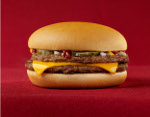Will Food Taxes Be Enough to Get People to Eat Healthy?
Author: tiger Published Under: Health

When one considers taxes, it is usually not with much joy. However, sometimes taxing something can be a good thing and a recent study on the impact of taxes on certain types of foods seems to indicate that in some cases, a tax on unhealthy foods, might be enough to stimulate people to eat healthier. Of the findings, one of the most promising is that a soda tax might have a big impact on steering people towards healthier alternatives.
After analyzing 184 different studies that tracked prices across 16 different types of food and beverage, researchers discovered some very interesting correlations between how the price of food affects demand.
In general, the findings supported the premise that the demand of food is inelastic in relation to the price, meaning that price does not directly affect demand. However, when specific types of foods are considered, there are many that show a very elastic relationship between cost and demand.
One of the most elastic categories of food was restaurant food and other types of food eaten when away from home, with the study finding that higher costs result in much lower demand. Similarly, when the cost of whole milk increases, consumers will typically switch to low-fat milk. Other foods that showed an elastic demand were sodas, juice, meat, and fruit, while eggs were largely inelastic.
This study is important, as it suggests that a tax on certain types of unhealthy foods, such as soft drinks, while other healthy options were subsidized or otherwise made to be lower in price, would in turn drive people to choose the healthier option.
This becomes all the more important when one considers that in general it is already less expensive to eat unhealthy foods than it is to eat healthy foods, with one only having to browse the grocery store to discover this. The same is often true of fast food restaurants, where the most affordable food in the restaurant, such as a McDouble, is quite unhealthy.
However, while there are a number of instances where demand for a food is is elastic compared to its price, loss of income, such as during the current recession, also plays a role in reducing the demand for food. As such, any increases in food prices must be carefully weighed, because it could ultimately backfire and cause people to choose the more unhealthy and inexpensive processed food options, rather than the healthier choices.
Source: American Journal of Public Health; Feb2010, Vol. 100 Issue 2, p216-222, 7p